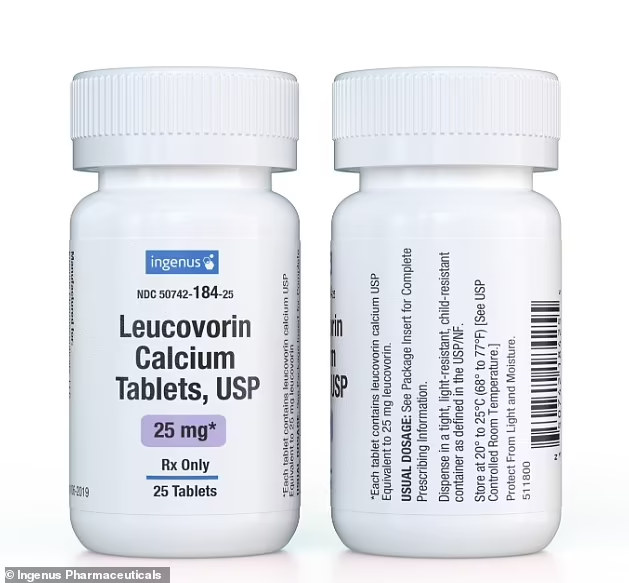One family’s breakthrough may provide hope for thousands of parents who’ve been told their children will never talk.

CBS News
When their son, Mason, now 5, was diagnosed with nonverbal autism at 2 1/2 years old, the Connor family was determined to find something to help him speak.
After multiple failed treatments, Mason’s parents consulted Dr. Richard Frye, a pediatric neurologist at Rossignol Medical Center in Arizona, who was researching experimental autism therapies.

Courtesy Caroline Connor
Dr. Frye recommended Leucovorin, a generic drug derived from folic acid. Just three days after starting the $2.50 tablets, Mason spoke his first words at three years old.
Folic acid, also known as vitamin B9, is essential for DNA synthesis and repair. Its naturally occurring form, folate, is found in leafy vegetables, peas, lentils, beans, eggs, yeast, and liver. Leucovorin is commonly used to protect red blood cells in cancer patients undergoing chemotherapy.
However, research suggests that some autistic children experience a folate deficiency in their brains due to a biological blockage, which may contribute to communication difficulties. Leucovorin is believed to help bypass this blockage.

Dr. Frye told CBS News: “[Leucovorin] could really have a substantial impact on a very good percentage of children with autism.”
According to the latest CDC data, one in 36 children in the U.S.—equating to nearly two million—have autism. Most children are diagnosed by age five, though some can be assessed as early as age two.
The National Institutes of Health reports that around 70 percent of autistic children have folate receptor autoantibodies, which attack healthy cells and prevent folate from reaching the brain. This deficiency can contribute to language delays.
Folic acid is also a key component in prenatal vitamins taken by pregnant women, as it has been shown to help prevent brain and spinal cord abnormalities.
In one of Dr. Frye’s studies, 44 autistic children with folate receptor autoantibodies were given 50 milligrams of Leucovorin daily for four months. All participants showed improvements in language, behavior, hyperactivity, mood, attention, and aggression.
A 2018 study by Dr. Frye’s team also found that autistic children with language delays who were treated with Leucovorin experienced “significant” improvements in language, as well as reductions in irritability, hyperactivity, and lethargy.

Leucovorin comes in tablets, injections, and infusions.
Dr. Frye stated, “We’ve done the science, and the next step is to secure more funding to seek FDA approval.”
Previous research has shown that some autistic children have antibodies in their blood that prevent folate (vitamin B9) from reaching the brain, leading to a deficiency. Leucovorin, a reduced form of folate, can bypass these antibodies and reach the brain.
Currently, Leucovorin is FDA-approved only for chemotherapy patients and individuals with certain types of anemia. However, doctors can prescribe it off-label for autism, though the extent of this practice remains unclear.
Dr. Frye has expressed concern that the drug’s low cost may deter further investment in research.
Earlier studies have indicated that pregnant women who take folic acid may reduce their child’s risk of developing autism by up to 40 percent.
Now five years old, Mason continues to take Leucovorin. Once nonverbal, he is now preparing to start traditional kindergarten in the fall.
Source: dailymail.co.uk; nypost.com
